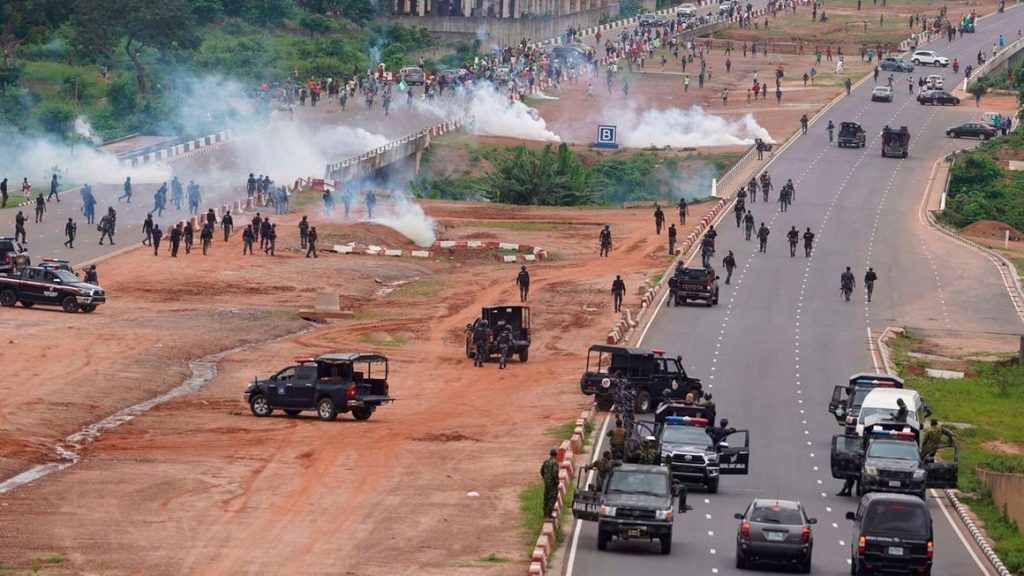In recent months, there has been a notable increase in the deployment of security forces employing excessive force against peaceful protesters, particularly among young people in Kenya, Uganda, and Bangladesh. This week, the Nigerian government issued stern warnings to citizens, urging them to refrain from participating in planned nationwide protests.
In a disturbing turn of events, police fired live ammunition and tear gas at thousands of demonstrators in Kano, who were protesting the soaring cost of living. This heavy-handed approach has become alarmingly common, even as national, regional, and international laws affirm the right to peaceful assembly.
These events follow a significant ruling from the Ecowas Community Court of Justice, which held Nigeria accountable for human rights violations stemming from the use of live fire during a peaceful protest at the Lekki Toll Gate in October 2020. This protest, organized by the youth-led #EndSARS movement, aimed to dismantle the notorious Special Anti-Robbery Squad (SARS), a police unit infamous for abuses including extortion and extrajudicial killings. The #EndSARS movement emerged from the government’s failure to provide effective governance.
The Ecowas Court found that the Nigerian state’s actions led to the deaths of at least 12 protesters and serious injuries to many others, violating their rights to dignity, security, and freedom of expression, assembly, and association. Furthermore, the court criticized the government’s lack of investigation into these violations and failure to provide justice.
Compensation was awarded to the victims, thanks to a coalition of organizations led by Citizens Gavel, which chose to pursue justice through the Ecowas Court due to widespread distrust in local judicial processes. A Judicial Panel of Inquiry set up by the Lagos State government had previously recommended extensive reforms, including compensation and accountability for implicated officers, but no action has been taken nearly four years after the incident. Although SARS was disbanded, its successor, the Special Weapons and Tactics (SWAT) unit, has also faced criticism.
This landmark judgment illustrates the potential of legal frameworks to hold governments accountable. In a context of pervasive impunity, it is crucial for citizens to leverage various legal tools to challenge state violations of rights. The experience from the Ecowas litigation process reveals that achieving favorable outcomes in such sensitive cases requires a well-coordinated, long-term legal and advocacy strategy.
Effective legal action must align with the evolving priorities of grassroots movements. This necessitates collaboration among diverse experts—journalists, analysts, lawyers, and community members—to strengthen the case against state narratives that downplay the events surrounding peaceful protests, often labeling protesters as criminals.
Collecting, preserving, and presenting solid evidence is essential to countering government claims. This includes careful witness preparation and psychological support for those testifying. Whenever possible, testimonies should be supported by digital evidence from credible sources to combat state narratives.
The litigation efforts in Nigeria raise important questions about the best avenues for citizens to seek justice. Key considerations include the independence of judicial platforms, the credibility of witnesses, and the integrity of evidence documentation. Building international solidarity and advocacy will also help maintain pressure on those in power.
Ultimately, the Ecowas Court’s ruling underscores the necessity for managing protests without excessive force and loss of life. This judgment not only holds promise for domestic accountability efforts but also serves as a significant resource for other countries facing similar challenges in protecting human rights in sub-Saharan Africa.




















